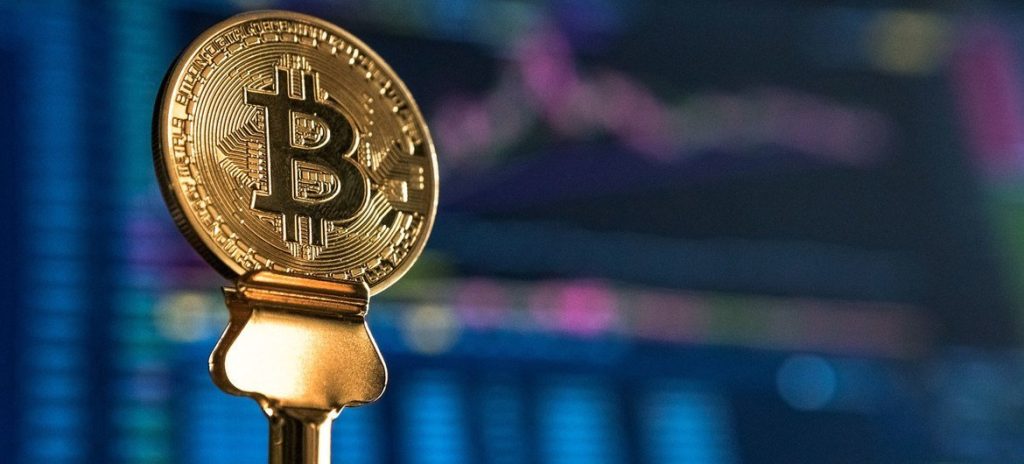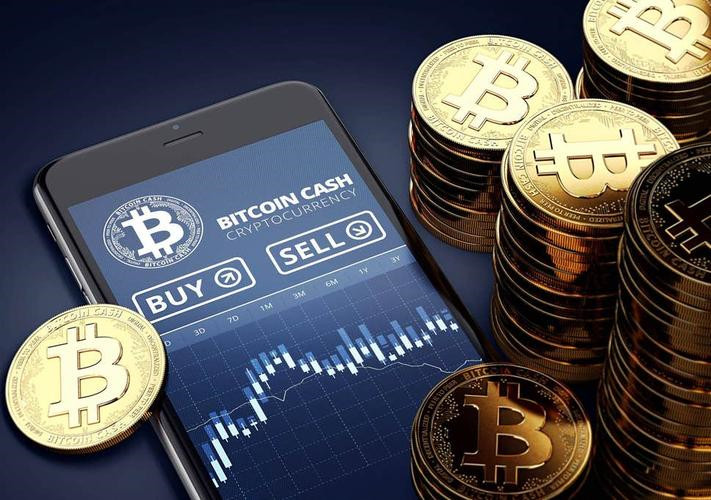Introduction
The rise of digital assets, including cryptocurrencies like Bitcoin, Ethereum, and other blockchain-based tokens, has fundamentally changed the landscape of financial markets. Digital asset trading platforms (also known as cryptocurrency exchanges or digital asset exchanges) have become vital gateways for users to buy, sell, and trade these assets. However, the increasing popularity of these platforms has prompted regulators across the globe to implement stricter and ever-evolving compliance standards to address concerns about market manipulation, fraud, money laundering, tax evasion, and consumer protection.
As the regulatory landscape around digital assets continues to evolve, exchanges must find ways to comply with increasingly complex and diverse regulations, which can vary significantly between countries and regions. Navigating this regulatory uncertainty while maintaining efficient operations, trust, and market integrity is one of the most significant challenges facing digital asset trading platforms today.
This article explores how digital asset exchanges are adapting to the constantly changing regulatory environment, including their strategies for compliance management, cross-border regulation, and collaboration with regulators.
1. The Importance of Compliance for Digital Asset Trading Platforms
1.1 Regulatory Expectations
Regulatory bodies around the world are continuously increasing their scrutiny of digital asset trading platforms due to concerns about their potential misuse for illegal activities such as money laundering, terrorist financing, and fraud. Furthermore, traditional regulatory frameworks that govern traditional financial markets—such as securities laws, anti-money laundering (AML), and know-your-customer (KYC) regulations—are being adapted to the cryptocurrency world to ensure that digital asset exchanges are operating in compliance with global financial standards.
1.2 Risk Management and Consumer Protection
Regulations are also being introduced to protect consumers and investors, ensuring that exchanges provide transparent pricing, secure trading environments, and safeguards against market manipulation. Digital asset exchanges that fail to meet compliance standards risk facing severe penalties, including fines, restrictions, or even the suspension of their operations in specific markets.
Maintaining compliance is critical for digital asset exchanges to mitigate legal risks, build trust with customers, and gain the approval of regulators, which in turn leads to broader adoption and credibility in the financial sector.
2. Major Compliance Challenges Faced by Digital Asset Platforms
2.1 Dynamic Regulatory Frameworks
One of the most significant challenges faced by digital asset trading platforms is the ever-changing nature of cryptocurrency regulations. Governments and regulators worldwide are still grappling with how to classify digital assets—whether as securities, commodities, or currencies—and how to regulate the trading of such assets. This lack of clarity can create a highly uncertain environment for exchanges operating in multiple jurisdictions.
2.1.1 Regional Variations in Compliance
- United States: In the U.S., the Securities and Exchange Commission (SEC) regulates cryptocurrency tokens that are deemed to be securities, while the Commodity Futures Trading Commission (CFTC) oversees digital assets that are treated as commodities. This fragmented regulatory approach creates compliance challenges for platforms that operate in multiple states or nationwide, as different states may impose different requirements.
- European Union: The EU is working on the Markets in Crypto-Assets Regulation (MiCA), a comprehensive regulatory framework for digital assets. However, this framework is still under development, and until its full implementation, exchanges must comply with country-specific regulations in countries such as Germany, which requires cryptocurrency exchanges to register with the Federal Financial Supervisory Authority (BaFin).
- China: China has imposed a strict ban on cryptocurrency trading and mining, but the country is also exploring the launch of its Central Bank Digital Currency (CBDC). This presents a challenge for digital asset platforms that previously operated in China but must now navigate the complex regulatory landscape regarding digital assets in the region.
- Japan: Japan has one of the most comprehensive regulatory frameworks for digital assets. The Financial Services Agency (FSA) oversees cryptocurrency exchanges, and businesses must comply with strict KYC and AML requirements. The rapid evolution of Japan’s crypto regulations means that exchanges operating there must stay agile and proactive in adapting to new rules.
2.2 KYC/AML Compliance and Privacy Concerns
A major regulatory requirement for digital asset exchanges is compliance with Know Your Customer (KYC) and Anti-Money Laundering (AML) standards. These regulations are designed to prevent illicit activities such as money laundering, fraud, and terrorist financing. In many jurisdictions, exchanges must collect personal data from their users and verify their identities before permitting them to engage in certain activities, such as depositing or withdrawing funds.
However, collecting this information presents a privacy concern. Many users choose cryptocurrencies for the privacy and anonymity they offer. The balance between complying with KYC/AML requirements and preserving user privacy is a major compliance challenge for exchanges.
2.3 Security and Cybersecurity Regulations
Digital asset exchanges are attractive targets for cybercriminals due to the large volumes of assets they manage. Ensuring the security of digital assets is not only a technical challenge but also a regulatory requirement. Many jurisdictions now require exchanges to adhere to specific cybersecurity standards to protect users’ funds and personal information.
- For example, the U.S. Department of the Treasury’s Financial Crimes Enforcement Network (FinCEN) has issued guidelines requiring digital asset exchanges to implement strong cybersecurity protocols and to report any suspicious activities. Failure to comply with these guidelines can result in regulatory penalties.
3. Strategies for Adapting to Changing Compliance Standards
3.1 Building a Compliance Framework
Digital asset exchanges are increasingly building internal compliance frameworks to monitor and respond to evolving regulations. These frameworks often include:
- Dedicated compliance teams: Exchanges are hiring specialists to ensure that all operations comply with local, national, and international regulations.
- Internal audits and monitoring: Regular audits are conducted to assess the effectiveness of compliance efforts and ensure the platform is adhering to legal standards.
- Automated compliance tools: Some exchanges use software tools that automatically monitor transactions for suspicious activities (AML) and flag any users that may pose compliance risks.
3.2 Collaborating with Regulators
To stay ahead of the regulatory curve, many digital asset platforms engage directly with regulators to better understand emerging rules and to advocate for the development of fair and consistent regulation. This collaboration can take many forms, including:
- Lobbying: Working with policymakers to influence the creation of laws that are favorable to the industry while still addressing concerns about consumer protection and financial integrity.
- Consultation: Some exchanges take part in formal consultation processes in countries like the European Union, where regulators regularly seek industry input on proposed laws such as MiCA.
- Partnerships with financial institutions: Many digital asset exchanges are forming strategic partnerships with traditional financial institutions to better integrate into the regulated financial system and meet regulatory standards.
3.3 Cross-Border Compliance Solutions
Since digital asset platforms often operate across multiple jurisdictions, managing compliance across borders is a complex task. To address this, exchanges are adopting several strategies:
- Geofencing: Many exchanges use geofencing to restrict access to their platforms based on a user’s geographical location, ensuring they comply with the laws in that jurisdiction. For example, exchanges might block users from countries where cryptocurrency trading is banned or heavily restricted.
- Localized compliance teams: In larger markets, exchanges set up regional compliance teams that are well-versed in local regulations and can ensure that operations in those regions are compliant.
3.4 Implementing Blockchain Analytics Tools
To meet AML and KYC requirements, digital asset exchanges are turning to blockchain analytics tools that enable them to track and monitor transactions on their platforms. These tools allow platforms to detect suspicious behavior and ensure that they are not facilitating money laundering or other illegal activities.
- Chainalysis and Elliptic are two leading blockchain analytics companies that provide transaction monitoring and risk management services to exchanges.
- These tools help exchanges identify the source of funds, track transactions, and comply with reporting requirements for suspicious activities.

4. The Role of Self-Regulation and Industry Standards
Given the complexities of the regulatory environment and the relatively new nature of digital assets, self-regulation is playing an increasingly important role. Some exchanges are proactively establishing industry-wide standards to ensure compliance while protecting users.
- Self-Regulatory Organizations (SROs): Platforms like the Global Digital Asset & Cryptocurrency Association (Global DCA) are working to create industry standards for digital asset exchanges to follow, focusing on best practices for KYC/AML, cybersecurity, and consumer protection.
- Voluntary Certification: Some exchanges are choosing to undergo voluntary certification by external auditors to demonstrate their commitment to regulatory compliance and build trust with regulators and customers.
5. Conclusion
Digital asset trading platforms are operating in a rapidly evolving regulatory environment where compliance with national and international standards is critical to their survival and success. To adapt to the shifting landscape, exchanges are adopting a variety of strategies, including building robust compliance frameworks, collaborating with regulators, leveraging blockchain analytics tools, and working toward self-regulation within the industry.
As regulatory clarity improves and global standards for digital assets begin to take shape, exchanges that prioritize compliance and work proactively with regulators will be best positioned to thrive in this dynamic and increasingly regulated market. Ultimately, balancing the decentralized ethos of digital assets with the need for regulation is the key challenge that will define the future of digital asset trading platforms.













































